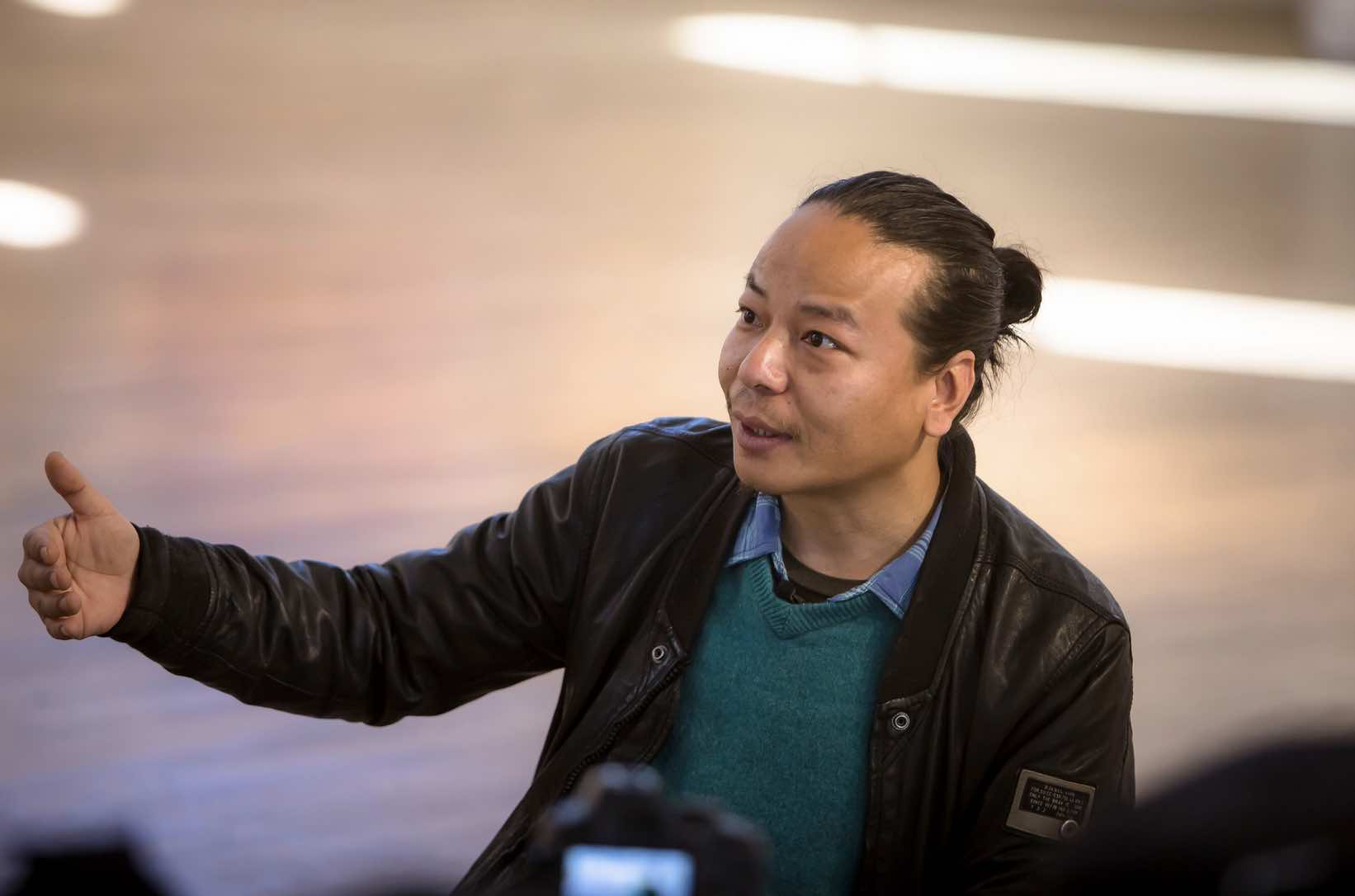From CU Denver to The Met: Celebrating the Artistic Journey and Impact of Tenzing Rigdol
Alice Crogan | College of Arts & Media Sep 10, 2024
Plan Your Visit
Mandalas: Mapping the Buddhist Art of Tibet
September 19, 2024–January 12, 2025
The College of Arts & Media (CAM) is proud to celebrate the extraordinary achievements of Tenzing Rigdol ‘05, one of CU Denver’s most distinguished alumni and often considered the most prolific Tibetan artist of his generation. Rigdol, renowned for his powerful works that bridge Tibetan culture with contemporary art, has been commissioned by The Metropolitan Museum of Art (The Met) for a groundbreaking series of contemporary pieces.
Opening September 19, The Met will present Mandalas: Mapping the Buddhist Art of Tibet, which explores the imagery of Himalayan Buddhist devotional art. Rigdol, who in 2014 became the first contemporary Tibetan artist to be acquired by the Met, will be centered in the exhibition. His recent works and mandalas addressing issues of climate change and modern social justice are juxtaposed with paintings, sculptures, costumes, and weapons dating from the 11th to 15th centuries. In The Met’s press release, Rigdol said “I’m trying to explore the quintessential tantric idea of universality and oneness and how intricately interconnected we all are.”
A Pivotal Chapter: How CU Denver Shaped Tenzing Rigdol’s Path to Becoming an Artist
Rigdol’s journey from Nepal to The Met includes a pivotal stop at CU Denver. It was here that he discovered a creative community and the artistic voice to create work that interweaves heritage, culture, and consciousness. In 1999, he came to Denver, Colorado with a cohort from Nepal; his family later joined in 2002, seeking political asylum. He studied painting and art history, earning both a BA and BFA in 2005.
“One of the challenges I faced was being far from my family, especially when communication was limited. Fortunately, I found a supportive community of wonderful professors and friends who helped me grow,” said Rigdol. “I was so eager to learn that I tried to stay longer and delay graduation to make the most of the resources available to me. For me, learning was more important than graduating—though I understand the value of graduating as well.”
As an interdisciplinary artist and scholar, Rigdol found a welcoming and supportive environment in CAM. In the early 2000s, when there were fewer pathways for international students to fund their education, Rigdol faced financial challenges and found support for his art at CAM.
“I initially came to CU Denver with a scholarship to study physics, but my passion shifted to art,” said Rigdol. “The university supported me, offering a scholarship that allowed me to focus on my research and art practice without financial worries. CU Denver provided me with more than just academic resources, and for that, I am always very grateful.”
Access to education at CU Denver was crucial in shaping Rigdol’s career as an artist. The opportunities and resources he encountered at the College of Arts & Media provided him with the skills and confidence to address complex social issues through his art. This foundation allowed him to become a voice for many and to create work that resonates on a global scale.
“If students can see somebody like me as an artist having some kind of a cause, some kind of a meaning, that would be wonderful,” said Rigdol in 2019, when the Emmanuel Art Gallery hosted his first solo exhibition. “I think one should have a cause, especially being students, being young, being an artist, or being anybody, actually.”
Rigdol Returns to Campus and the CAM Community
In 2019, Rigdol returned to the CU Denver campus for his first U.S. solo gallery exhibition, “My World Is in Your Blind Spot” at CAM’s Emmanuel Art Gallery. The title was shared with his series of Buddhas created from textiles, scripture, and photographs. By this time, Rigdol had earned international notice for his 2011 site specific installation in India, titled “Our Land, Our People”. Through an arduous journey, Rigdol transported 20,000 kg of Tibetan soil, which, blessed by the Dali Lama to India, and serving as a public artwork and social statement, allowed Tibetan refugees to walk to on the earth of their homeland.
Three years later in 2022 Rigdol visited the CU Denver campus again, this time to receive an honorary doctorate degree, making him the first Tibetan artist to be awarded that honor.
Rigdol’s relationship with CU Denver is a testament to the circuitous journey of learning and giving back. For the last two summers, he has hosted students from the study abroad program, “Transforming Tradition - Arts, Media, and Meditation in a Changing World” at his studio in Nepal. The program is designed to help CU Denver undergraduates recognize and act on opportunities in life by embodying the Zen concept of shoshin, or “Beginner’s Mind,” the practice of dropping our expectations and preconceived biases to openly experience every situation as if it was our first time. Rigdol’s response to life is an object lesson for all. No matter how great the obstacle—professional or personal—we can create empathetic solutions that are both original and pragmatic when we meet people and problems where they are, openly and with curiosity.